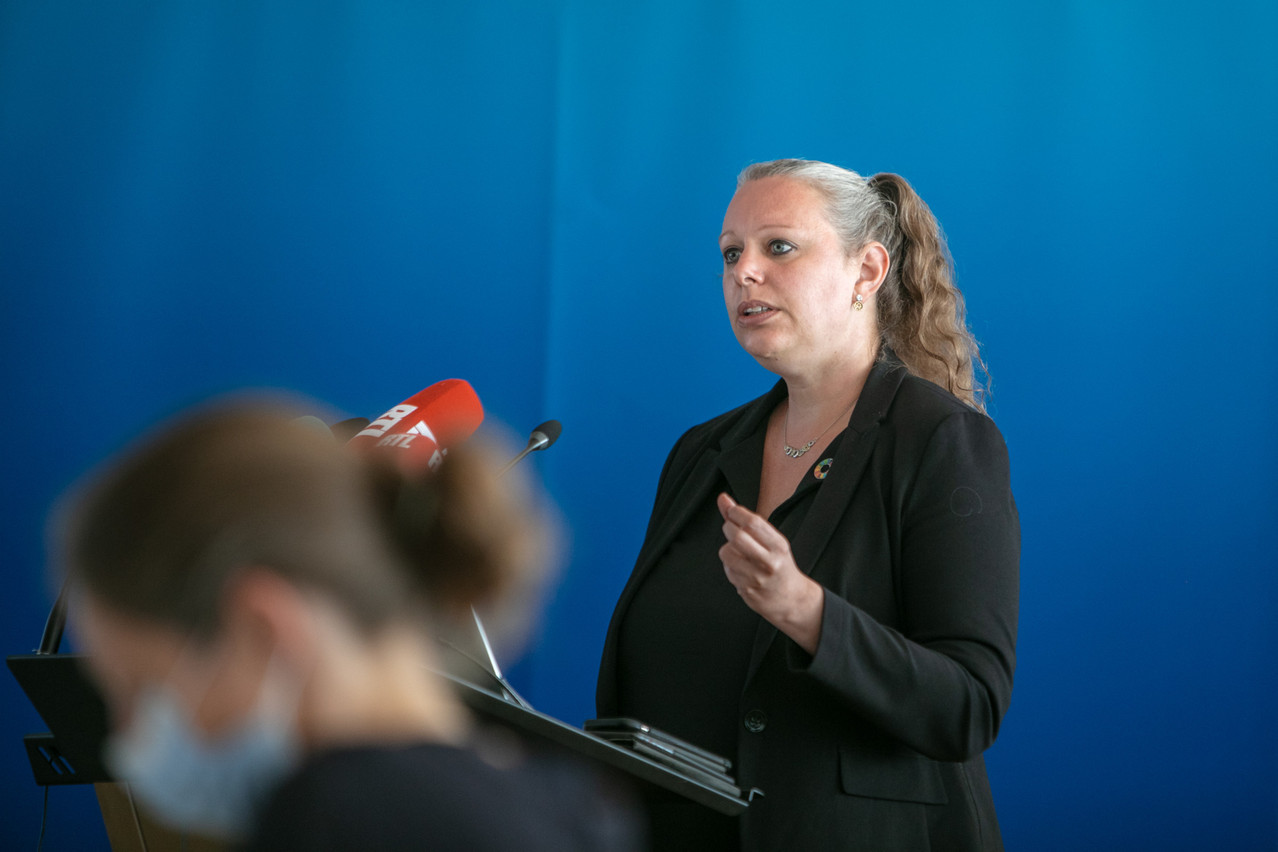"Adapting and becoming more resilient, while implementing ambitious climate policies to avoid having even more extreme events," environment minister Carole Dieschbourg (déi Gréng) said in response to the floods that hit the country on 14 and 15 July.
Dieschbourg was taking stock at a press conference on Monday. Although the spectacular floods that rocked Luxembourg, Belgium and Germany, have multifactorial causes - surfaces sealed by ever denser urbanisation, waterlogged and waterproofed land after weeks of rain - there was no denying the extreme nature of the rainfall.
In fact, out of 41 monitoring stations in the grand duchy, 15 recorded water levels never seen before in the country's history, and 10 others recorded levels equivalent to a category of flooding that statistically occurs only once a century. The phenomenon was not only extreme, but also widespread: "It wasn't just local, but all over the country," said Dieschbourg.
From drought to floods
The flood measures, which were designed to deal with extreme floods that only occur once every 100 years, were overburdened. "These measures helped a great deal to a certain extent,” said the minister. They managed to temporarily stave off some flooding, “but they did not work in all localities, because the situation was too extreme: there was too much rain, too much water," she explained.
Unfortunately, despite their exceptional nature, such situations are likely to become more and more frequent: the recurrence of such floods, which used to be every 100 years, could become regular occurrences every 30 years. The cause is the climate and environmental crisis, even if a direct link is never obvious: "It is always very difficult to classify an event, but if we look at the past, we can see that they are becoming more regular," says Dieschbourg. "In our regions, this climate disruption is characterised on the one hand by extreme events such as heavy rainfall and flooding, and on the other hand by periods of drought such as we have experienced in the last three years."
Becoming resilient
So in the short term, it's all about adapting to climate change. Developing more resilience to such events is unavoidable. Increasing urbanisation is in the firing line: areas must be set aside for undeveloped land, building in flood-prone areas should be avoided or, if necessary, adapted by putting using some sort of stilt system.
It is also a question of renaturing watercourses and making room for water, by establishing structures such as retention basins to hold back water when it is abundant. And to implement all this, it is essential to work with all stakeholders, from municipalities to landowners.
No zero risk
However, there is no such thing as zero risk and there never will be, stated the minister: "Extreme events are characterised by their speed, and not all risks can be avoided. But the mission is to reduce them, to protect people and to avoid the worst.”
And in the longer term, in order to avoid an increase in extreme weather events, ambitious climate policies, including reducing greenhouse gas emissions, must be implemented.
